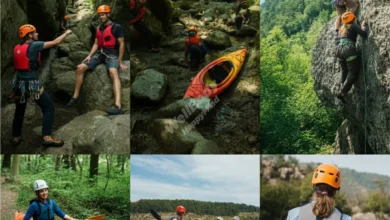Advanced Gardening Workshops for Seniors: Grow Your Expertise

Did you know that gardening can add years to your life? A study published in the British Journal of Sports Medicine found that regular gardening can reduce the risk of death by up to 18% for people over 60. For senior gardening enthusiasts, the journey of learning never ends. That’s where advanced gardening workshops come in, offering a unique blend of education, social interaction, and physical activity.
These workshops are not your average gardening classes. They’re specially designed for experienced senior gardeners who want to take their skills to the next level. Whether you’re looking to master sustainable techniques or dive into exotic plant cultivation, these workshops offer something for every green thumb.
Why Advanced Gardening Workshops for Seniors?
You might wonder, “Why should I attend a workshop if I’ve been gardening for decades?” The answer lies in the numerous benefits these workshops offer:
- Continuous Learning: Gardening techniques and knowledge are always evolving. These workshops keep you up-to-date with the latest trends and research in horticulture.
- Social Interaction: Meeting fellow gardening enthusiasts can lead to new friendships and a sense of community. It’s a great way to combat loneliness, which is often a concern for seniors.
- Cognitive Stimulation: Learning new skills and solving gardening challenges can help keep your mind sharp. Studies show that gardening activities can reduce the risk of dementia by 36%.
- Physical Activity: While these workshops are not as physically demanding as regular gardening, they still provide opportunities for gentle movement and hands-on practice.
- Sense of Purpose: Mastering advanced gardening techniques can give you a renewed sense of purpose and accomplishment.
Types of Advanced Gardening Workshops
1. Sustainable Gardening Techniques
As climate change becomes an increasingly pressing issue, sustainable gardening techniques are more important than ever. These workshops focus on eco-friendly practices that help you create a beautiful garden while minimizing environmental impact.
Topics often covered in sustainable gardening workshops include:
- Composting: Learn advanced composting techniques to create nutrient-rich soil for your plants.
- Water Conservation: Discover innovative ways to reduce water usage in your garden.
- Natural Pest Control: Master organic methods to keep pests at bay without harmful chemicals.
- Native Plant Cultivation: Understand the benefits of growing native plants and how to care for them.
By attending these workshops, you’ll not only improve your gardening skills but also contribute to a healthier planet.
2. Specialized Plant Cultivation
For those looking to expand their horticultural horizons, workshops on specialized plant cultivation offer exciting opportunities. These sessions delve into the intricacies of growing and caring for unique or challenging plant species.
Some popular categories in specialized plant cultivation workshops include:
- Orchids: Learn the secrets of growing these delicate and beautiful flowers.
- Bonsai: Master the art of cultivating miniature trees in containers.
- Heirloom Vegetables: Discover how to grow and preserve rare vegetable varieties.
- Tropical Plants: Explore techniques for growing exotic plants in non-tropical climates.
These workshops can help you add diversity to your garden and challenge your gardening skills in new and exciting ways.
3. Landscape Design for Seasoned Gardeners
Even experienced gardeners can benefit from advanced landscape design principles. These workshops go beyond basic garden layouts, offering insights into creating stunning, functional outdoor spaces that reflect your personal style and meet your specific needs as a senior gardener.
Key topics in landscape design workshops often include:
- Garden Zoning: Learn how to create distinct areas for different purposes (e.g., relaxation, vegetable growing, wildlife attraction).
- Color Theory in Gardens: Understand how to use color effectively to create mood and visual interest throughout the seasons.
- Accessible Garden Design: Discover techniques for creating gardens that are easy to maintain and navigate as you age.
- Hardscaping: Explore the use of non-plant elements like paths, walls, and water features to enhance your garden’s structure.
Here’s a comparison of different landscape styles you might explore in these workshops:
| Style | Key Elements | Best Suited For |
|---|---|---|
| Formal | Symmetry, geometric shapes, clipped hedges | Those who prefer order and structure |
| Cottage | Informal, abundant plantings, mix of flowers and edibles | Gardeners who love a romantic, carefree look |
| Japanese | Minimalist, focus on balance and harmony, use of rocks and water | Those seeking a meditative, serene space |
| Mediterranean | Drought-tolerant plants, gravel, terracotta pots | Gardeners in warm, dry climates |
4. Horticultural Therapy Techniques
Gardening isn’t just a hobby; it can be a powerful tool for improving mental and physical well-being. Horticultural therapy workshops teach you how to use gardening activities therapeutically, benefiting both yourself and potentially others in your community.
Some specific techniques and their benefits for seniors include:
- Sensory Gardening: Creating gardens that stimulate all five senses can help improve cognitive function and reduce stress.
- Adaptive Gardening: Learning to use specialized tools and techniques can help you continue gardening despite physical limitations.
- Memory Gardens: Designing spaces with plants that evoke memories can be particularly beneficial for those with early-stage dementia.
- Social Gardening: Techniques for using gardening as a social activity can help combat isolation and depression.
By mastering these techniques, you can transform your garden into a powerful tool for maintaining and improving your health as you age.
Finding the Right Workshop
With so many options available, choosing the right advanced gardening workshop can seem overwhelming. Here are some tips to help you find the perfect fit:
- Assess Your Skill Level: Be honest about your current abilities and choose a workshop that will challenge you without being frustrating.
- Consider Your Interests: Look for workshops that align with your gardening passions or areas you’ve always wanted to explore.
- Check the Instructor’s Credentials: Ensure the workshop is led by someone with genuine expertise in the subject matter.
- Read Reviews: If possible, look for feedback from previous participants to gauge the quality of the workshop.
When evaluating workshops, consider these factors:
- Location: Is it easily accessible for you?
- Duration: Does it fit your schedule? Multi-day workshops might offer more in-depth learning but require a bigger time commitment.
- Cost: Is it within your budget? Remember to factor in any materials or tools you might need to purchase.
- Group Size: Smaller groups often allow for more personalized instruction.
- Physical Requirements: Ensure the workshop activities are suitable for your physical abilities.
By carefully considering these factors, you can choose a workshop that will be both enjoyable and beneficial for your gardening journey.
Preparing for an Advanced Gardening Workshop
Once you’ve selected the perfect workshop, proper preparation can help you make the most of the experience. Here’s a checklist of items to consider bringing:
- [ ] Notebook and pen: For taking detailed notes
- [ ] Gardening gloves: In case of hands-on activities
- [ ] Comfortable, weather-appropriate clothing: Layers are often best
- [ ] Hat and sunscreen: For outdoor sessions
- [ ] Water bottle: Stay hydrated during the workshop
- [ ] Reading glasses: If needed for close-up work
- [ ] Camera or smartphone: To document demonstrations or plant specimens
- [ ] Business cards: For networking with fellow gardening enthusiasts
To maximize your learning experience:
- Review the workshop outline beforehand and jot down any questions you have.
- Brush up on basic terminology related to the workshop topic.
- Get a good night’s sleep before the workshop to ensure you’re alert and ready to learn.
- Arrive early to familiarize yourself with the location and settle in comfortably.
- Participate actively by asking questions and engaging in discussions.
Remember, these workshops are not just about absorbing information—they’re opportunities to share your own experiences and learn from other seasoned gardeners as well.
Implementing New Knowledge in Your Garden
After the workshop, you’ll likely be brimming with new ideas and techniques to try. Here are some strategies for applying your new knowledge effectively:
- Start small: Choose one or two new techniques to implement first, rather than trying to overhaul your entire garden at once.
- Document your progress: Keep a gardening journal to track what works and what doesn’t as you apply new methods.
- Be patient: Some advanced techniques may take time to show results. Give your new approaches a fair chance before deciding if they’re effective.
- Adapt to your environment: Remember that techniques that work in the workshop setting may need to be adjusted for your specific garden conditions.
- Seek support: Connect with other workshop participants or join online gardening forums to share experiences and get advice as you implement new techniques.
Tips for experimenting with new techniques safely:
- Research thoroughly before attempting any major changes to your garden.
- Use proper safety equipment, especially when trying new tools or working with unfamiliar plants.
- Start with a small test area when implementing new soil treatments or pest control methods.
- Monitor plants closely for any adverse reactions to new care techniques.
- Keep a record of changes you make, including dates and specific actions taken.
By approaching the implementation process thoughtfully and systematically, you can successfully integrate your new knowledge into your gardening practice while minimizing risks.
Sharing Expertise: From Workshop Participant to Community Leader
As you gain advanced gardening knowledge, consider sharing your expertise with others. This not only reinforces your own learning but also contributes to the broader gardening community. Here are some ways you can share your knowledge:
- Volunteer at community gardens: Offer guidance to less experienced gardeners.
- Start a gardening club: Create a space for local gardeners to share knowledge and experiences.
- Write for local publications: Submit articles on gardening tips to newspapers or community newsletters.
- Mentor young gardeners: Pass on your wisdom to the next generation of green thumbs.
- Host garden tours: Showcase your garden and explain the advanced techniques you’ve implemented.
- Teach workshops: Once you’ve mastered certain techniques, consider leading your own workshops.
By sharing your expertise, you’ll not only help others but also solidify your own understanding of advanced gardening concepts.
Conclusion
Advanced gardening workshops for seniors offer a wealth of benefits that go far beyond simply improving your gardening skills. These workshops provide:
- Continuous learning opportunities to keep your mind sharp and engaged
- Social connections with like-minded individuals who share your passion
- Physical activity that’s gentle yet beneficial for your health
- A sense of purpose and accomplishment as you master new techniques
- Tools to create more sustainable and beautiful gardens
As we’ve explored, there’s a wide variety of workshops available, from sustainable gardening practices to specialized plant cultivation, landscape design, and even horticultural therapy. Each of these areas offers unique insights that can transform your gardening experience and, by extension, your overall well-being.
Remember, gardening is a lifelong journey of learning and growth. By participating in advanced workshops, you’re not just nurturing your plants—you’re nurturing your mind, body, and spirit. You’re also positioning yourself to become a valuable resource in your community, sharing your expertise and inspiring others to discover the joys of gardening.
Whether you’re looking to create a more eco-friendly garden, cultivate rare plant species, design a stunning landscape, or use gardening as a therapeutic tool, there’s an advanced workshop out there for you. The key is to find the right one that matches your interests and skill level, prepare thoroughly, and approach the experience with an open mind and enthusiasm.
Call-to-Action
Now that you’re equipped with knowledge about advanced gardening workshops for seniors, it’s time to take action:
- Research workshops in your area: Look for local gardening clubs, botanical gardens, or community colleges that might offer advanced workshops.
- Set a goal: Decide on one aspect of your gardening you’d like to improve or a new skill you’d like to learn.
- Register for a workshop: Take the plunge and sign up for a workshop that aligns with your interests and goals.
- Prepare your garden: Start thinking about how you might apply new techniques in your own space.
- Share your intentions: Tell a friend or family member about your plans. This can help keep you accountable and excited about your gardening journey.
Remember, every expert gardener was once a beginner. By continually seeking to learn and grow, you’re not just maintaining your garden—you’re cultivating a richer, more fulfilling life. So go ahead, sign up for that workshop, and watch as your garden—and your gardening expertise—flourish like never before!
Are you ready to take your gardening skills to the next level? The world of advanced gardening is waiting for you. Happy gardening!



